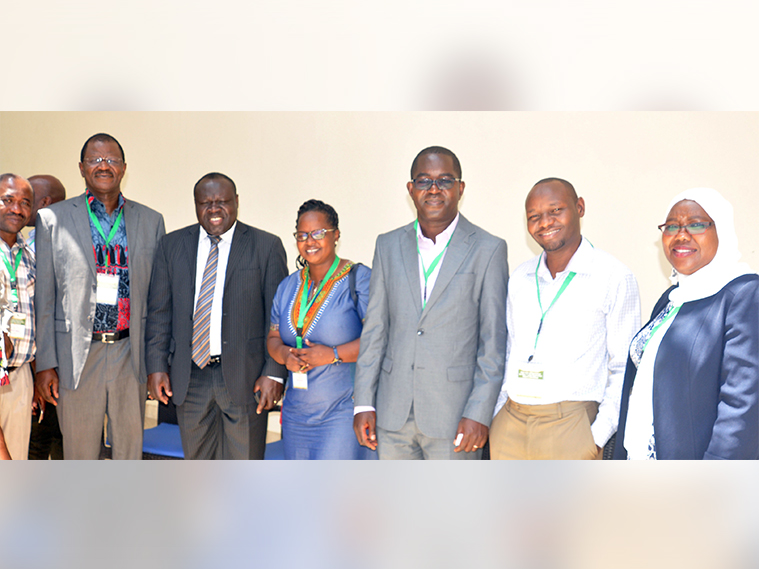By Dr. Daniel Kyalo Willy
Experts on Pesticide Registration from EAC Partners states of Kenya, Uganda, Tanzania, Rwanda and Burundi gathered in Dar Es Salaam, Tanzania from September 18 to 20 to finalise drafting of the Regionally Harmonised Guidelines for the Registration of Bio-pesticides and Biocontrol Products.
The three-day technical working group meeting also brought together experts from AATF, USDA-FAS, CropLife International, CABI, EAC Secretariat and Makerere University.

The process which contributes to creating an enabling environment for policy and regulatory environment for release, registration and trade in agro-inputs is supported by AATF through financing from USDA-FAS while leveraging on technical assistance from the Technologies for African Agricultural Transformation (TAAT) Policy Enabler Compact supported by AfDB.
During the opening session of the technical working group, the EAC Deputy Secretary General in-charge of Productive and Social Sectors Hon. Christophe Bazivamo, reiterated the importance of the EAC partner states working together in addressing the challenges in agriculture, one of the most important sectors in the region.
He also indicated that the regulations under consideration are of critical importance not only to EAC but as a benchmark at continental level as African States seek to implement the African Continental Free Trade Area (AfCFTA).
These regulations come at a time when the partner member states are grappling with the challenge of pressure from existing and emerging pests such as the Fall Armyworm which have threatened to suppress crop productivity in the region which will further threaten food security.
Speaking during the meeting, Dr. Francis Nang’ayo, Senior Manager, Regulatory Affairs at African Agricultural Technology Foundation (AATF) underscored the sense of importance and urgency required to fast track the finalisation and adoption of guidelines for testing and registration of biopesticides by EAC policy organs.
“The finalisation of these guidelines is not only important but very urgent to set the stage for adoption of implementation of processes that will ensure availability of promising pest control products to address the threat caused by the recent outbreak and spread of the Fall Army Worm (FAW) in the regions,” said Dr. Nang’ayo.
The meeting is expected to produce a final version of the harmonised guidelines that will be presented to the EAC Council of Ministers for adoption and implementation thereby opening avenues for companies that have expressed interest to test and register promising bio-pesticides essential for mitigation of the recent outbreak and spread of the Fall Armyworm among other pests.
When finalised and ratified by the EAC partner states, the guidelines will enhance efficacy testing and registration of plant protection products to complement the conventional pesticides.



















































































